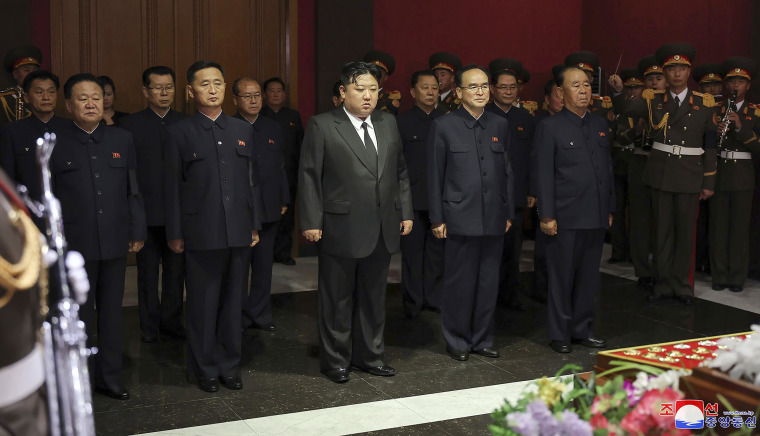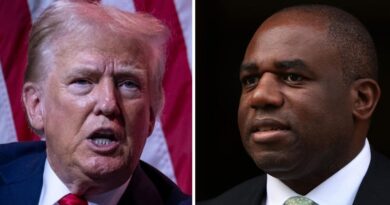The North Korean official whose propaganda helped build the Kim dynasty dies at 94
SEOUL, South Korea — Kim Ki Nam, a North Korean propaganda chief who helped build personality cults around the country’s three dynastic leaders, has died at 94, the North’s state media said.
North Korea’s official Korean Central News Agency said the country’s current leader, Kim Jong Un, visited the body of Kim Ki Nam at a funeral hall in the capital, Pyongyang, early Wednesday and expressed condolences to family members. The agency said Kim Jong Un will lead the state funeral committee for Kim Ki Nam, who will be buried on Thursday.
KCNA said Kim Ki Nam, a former secretary of the ruling Workers’ Party’s central committee, “devoted his all to the sacred struggle for defending and strengthening the ideological purity of our revolution and firmly guaranteeing the steady victory of the socialist cause.” The agency said he died Tuesday after being treated for age-related illnesses and multiple organ dysfunctions for the past year.

Kim Ki Nam’s role as the country’s chief propagandist earned him notoriety in South Korea, where media nicknamed him the “North Korean Goebbels,” after Nazi Germany’s propaganda minister Joseph Goebbels.
He also led the delegation to South Korea in 2009 that attended the funeral of former South Korean President Kim Dae-jung, who had pursued engagement with the North and held a summit with former North Korean leader Kim Jong Il, the father of the current ruler.
Kim Ki Nam was one of the seven senior officials who joined Kim Jong Un in accompanying the hearse of the late leader Kim Jong Il following his death in 2011.
Kim Ki Nam was a professor at Kim Il Sung University and the chief editorial writer of the state-run Rodong Sinmun newspaper before taking leadership roles in the ruling Worker’s Party’s propaganda departments starting in the 1980s.





